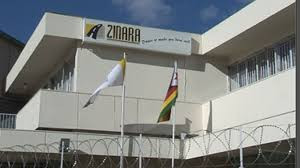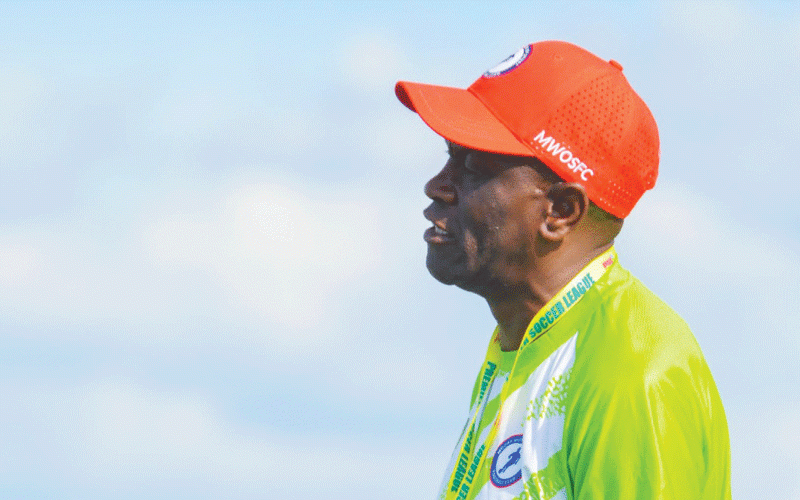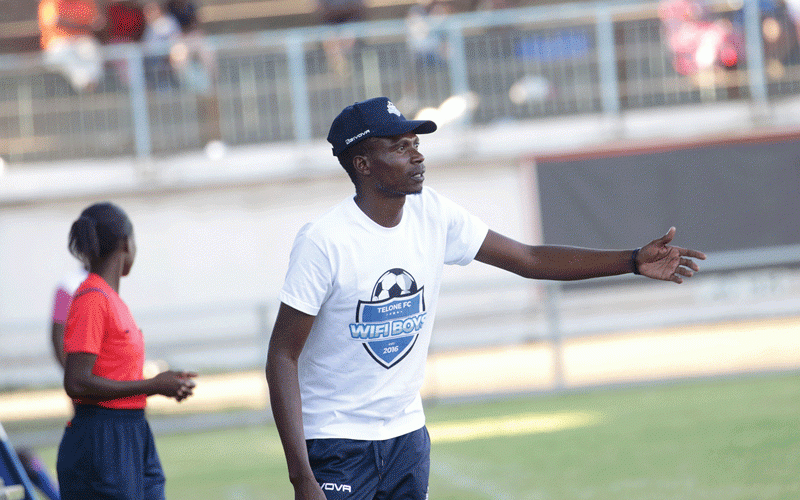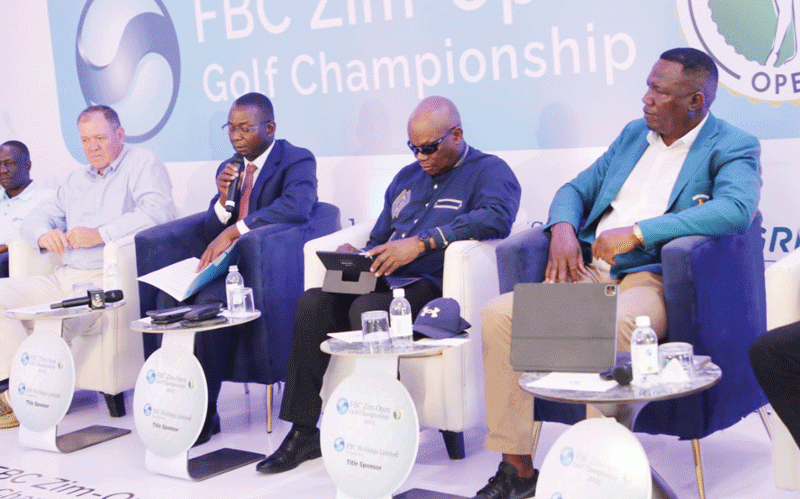
AS the battle for cricket continues, Zimbabwe Cricket Convenor of selectors Givemore Makoni responds to Minister of Education, Sport, Arts and Culture David Coltart’s Saturday statement.
Below is part of Coltart’s Saturday response:
I have noted with regret the highly intemperate and defamatory statements issued in response to the directive this week by the erstwhile convener of selectors of Zimbabwe Cricket, Mr Givemore Makoni, claiming, inter alia, that the directive has some racist motive. Whilst I understand Mr Makoni’s distress at losing his job, he would have been better advised to take a leaf out of Dale Carnegie’s book regarding how to make friends and influence people.
His abusive remarks are not only unnecessary, but ironically the remarks themselves bring into question his suitability for holding such an important national position. I note that Mr Makoni remains manager of the Rocks franchise so his services to cricket will not be lost.
Be that as it may it is necessary for me to respond to the specific allegation that this is some racist plot to prevent black Zimbabweans from advancing in cricket. Firstly, it is well known that there are numerous black Zimbabweans who have played cricket at international level for Zimbabwe and who have now retired from international cricket, such as David Mutendera, Ethan Dube and Tatenda Taibu, who would make superb selectors. In this regard I have noted that Mr Makoni is recorded as stating, in his comments carried in the Zimbabwe Independent newspaper, that Ethan Dube did not play for Zimbabwe and is ineligible, which is false as Mr Dube played for Zimbabwe in 1990.
Secondly, it is ironic that Mr Makoni refers, in his comments contained in the Herald newspaper, to my criticism regarding selections during the tour to New Zealand without mentioning that those criticisms were mainly focussed on the non-selection of a black player Vusimuzi Sibanda, which hardly tallies with some racist agenda. Thirdly, I note that Mr Makoni suggests that the directive will make Mr Stephen Mangongo ineligible for appointment as national coach (as part of an alleged further racist agenda), which is also false as the directive does not apply to coaches.
Nowhere in the directive does it state that a prerequisite for appointment as a national coach must have international experience.
Only if a coach is to sit on a national selection panel then that person should have international experience in terms of paragraph 2.2 of the directive. Historically the practice in Zimbabwe Cricket is that the coach has not been part of the selection panel although the coach’s views are taken into account. Accordingly, these directives do not in any way affect that historical practice. Therefore any suggestions that the directives in general are racist are patently false and nonsensical.
- Chamisa under fire over US$120K donation
- Mavhunga puts DeMbare into Chibuku quarterfinals
- Pension funds bet on Cabora Bassa oilfields
- Councils defy govt fire tender directive
Keep Reading
Makoni’s statement I have noted the Minister of Education, Sport, Arts and Culture David Coltart’s response to my criticism of his directives regarding the appointment of national team selectors through the Sports and Recreation Commission.
While the minister attempts to camouflage the directives with the “national interest” punch line, his statement patently failed to mask that they were crafted for particular sporting disciplines only. That Minister Coltart mentioned a serious dispute regarding the selection of the Zimbabwe team to participate in a World Bowls event in Australia, as well as selection controversies in some major sports like football and cricket is not coincidental.
As far as I know, football has no selection panel as that burden is the prerogative of the coach.
That then leaves just bowls and cricket from the examples the minister gave. He probably mentioned football and cricket as the two biggest sporting disciplines in the country, but it then begs the question why bowls? What was this selection controversy in bowls about and who are these protagonists that felt the selectors were unqualified and alleged interference in the process? Why is the minister not giving us the whole story?
The minister claims my frustration comes from the insecurity of losing my post as national convener of selectors. No minister I can leave that post today. I have contributed to the transformation and spread of cricket to previously disadvantaged communities in a manner the minister cannot dispute.
My frustration actually stems from minister Coltart’s subtle attempts to reverse the transformation agenda in cricket which he initially resisted as an ordinary legislator. Now that he is the minister in charge of sport, he is using his position to actually regularise that resistance. I have known minister Coltart in cricketing circles well before I became a national selector and his contribution to the game has been nothing more than divisive.
While the directives appear prudent and in the national interest at face value, their racial poison appears upon close scrutiny as they seemingly target only formerly white-dominated sports. I don’t know much about bowling as a sport, but cricket is the only discipline I know a transformation war was waged for the involvement of the current majority black players’ participation.
Minister Coltart is correct in stating that his directives do not prevent Stephen Mangongo from being appointed national coach, but indirectly they disqualify him because a national coach automatically becomes a national selector. The cricket coach is involved in the selection of teams and minister Coltart knows that. For example, the current 24-man training squad for the West Indies tour was picked by coach Alan Butcher, Zimbabwe High Performance coach and national selector Wayne James and myself.
In fact, the reason I term the minister’s directives racist is because they are not new at all. They were first presented to the then Zimbabwe Cricket Union by former national cricket captain Heath Streak and his all-white 14 rebel players and consolidated in a 2 714-word public statement they released on April 12, 2004. Among the rebel players’ set of demands was a change in the make-up and policy of national selectors.
The rebel players comprising Heath Streak, Stuart Carlisle, Grant Flower, Craig Wishart, Andy Blignaut, Raymond Price, Gary Brent, Sean Irvine, Travis Friend, Barney Rogers, Trevor Gripper, Richard Simms, Neil Ferreria, Charles Coventry and Gavin Ewing demanded that a selector should possess a Level 3 Coaching Certificate with 5-6 years’ experience as a First Class Coach, to have played 5-6 years of First Class Cricket or to have represented the national team. All these demands were aimed at removing the then national convener of selectors Stephen Mangongo and Macsood Ebrahim, who did not meet this criterion.
The rebel players felt selectors who lacked these qualifications used unofficial quotas to bring more black players into the team. So there is nothing in the national interest in Minister Coltart’s directives.
They are just longstanding demands of people opposed to the transformation of cricket from being a preserve of a few families to a truly national sport, disguised as a Sports and Recreation Commission directive. Is it not ironic that the name of Ethan Dube, who came to the minds of the rebel players in 2004 as a preferred national selector also comes to the minister’s mind in the same capacity nine years later? Or could it be that it’s the same mind? Minister Coltart should not try and fool us with his national interest mantra when in fact he is hell bent on removing all those responsible for the survival of cricket in Zimbabwe during a period he and rebel players and their backers sought to collapse the sport simply because more blacks were becoming involved.
Was the minister not the mastermind of the infamous donning of black armbands by Andy Flower and Henry Olonga to mourn the “death of democracy” during a World Cup match in 2003? Did he not lead a delegation to Cape Town to meet the England cricket team during the same World Cup to advise it not to fulfill its World Cup fixture in Zimbabwe arguing that it was not both cricketing and politically correct for England to do so? Talk of “national interest”.
The minister is not being entirely honest when he claims his criticism regarding selections during the tour to New Zealand was mainly focused on the non-selection of Vusimuzi Sibanda. I personally fought a directive from the Cricket Committee chairman Alistair Campbell barring Vusimuzi Sibanda from selection and the minister did not intervene.
He only got involved when I dropped Keegan Meth for Prosper Utseya during the same tour in conditions that suited spin. Furthermore, the minister recently personally gave a directive to Zimbabwe Cricket to reinstate Carl Jarvis in the domestic league after he had been suspended by the disciplinary committee for abusing black umpires. Is this also in the national interest?
So I am not convinced that minister Coltart has Zimbabwe national teams’ interests at heart in his latest directives, but seeks to secure the entry of as well as the continued involvement of his friends, some of whom are his sports advisers, in determining the composition and direction of Zimbabwean sport.











